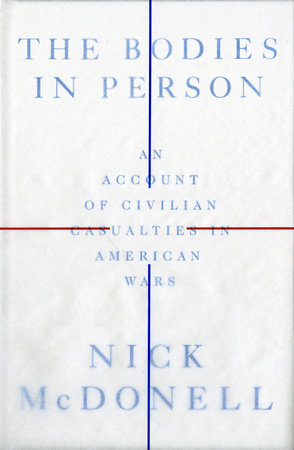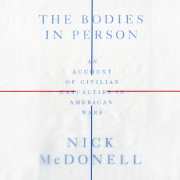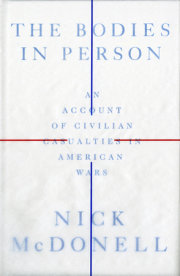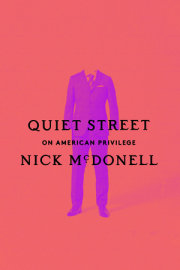1.
Attempt to Reach Civilians Trapped in West Mosul
Lieutenant Colonel Rabih Ibrahim Hassan, forty-eight, civil defense, West Mosul. He speaks with the particular rolling accent of that city, as do his six children and wife, in whose company he dons a blue jumpsuit before departing for the station at dawn. It's an abandoned Education Ministry building in the recently liberated neighborhood of Ras al-Jadah, one squat story little furnished or supplied but surrounded by sturdy walls, with enough room for the unit's battered, shining trucks. The men of civil defense haven't been paid in three years. Under Islamic State occupation, Rabih lied to the militants through his slightly buck teeth, misdirected and complied subversively with the letter of their commands. He and his men were on another call and could not, therefore, come to the aid of the fighters. He and his men could not take up arms against the apostates, as doing so interfered with rescue operations. He and his men were present at the site, digging by hand, expecting the dead but hoping as ever for the living, where were you? Rabih is wry, didactic, and exhausted. Faced with a never-ending series of catastrophes, he tends, before delivering his verbose and often shouted orders, to eye closing and lengthy dramatic pause, such as he is now affecting, on the phone, in his makeshift office, while a teary middle-aged couple sits on a ragged sofa opposite, begging that he dig their relatives out from beneath the rubble of yet another American airstrike.
Rabih opens his brown eyes.
"My dear brother," he says into the phone, "I am quite aware of the address you are talking about. I just came back to the base from the middle of Pepsi Road toward the Boursa area. Behind the street directly. We went there, and we assumed there were people alive under the destroyed buildings. We met Colonel Muneer for about fifteen minutes. He didn't let us in, and they were under chemical attack. It is out of hand. When the army claims that there were chemical attacks, how can I go there?"
He listens. It's Sunday. On Friday at about four in the afternoon an airstrike destroyed the house in question, close to the front line in Zanjili. Twenty or more people are reportedly trapped beneath the rubble. This is during the final days of the battle for Mosul in 2017, the largest-scale urban combat the world has seen since World War II. It's a proxy war, fought between ISIS and the combined United States and Iraqi forces, but also the rest of the world's powers, which, in various and shifting configurations, accuse one another of starting the combat intermittently engulfing three thousand miles from Mediterranean to Hindu Kush. The U.S. position is particularly fractured-the American president accuses his predecessor of "founding ISIS." Colonel Rabih doesn't have time to follow the news, though, because he and his men are overwhelmed with bodies.
Rabih's deputy, Lieutenant Mohammed Shaaban, sits in a corner on a plastic chair adding names to an A4 notebook. On its cover is written martyrs' book, march 2017-. The end date is left blank. The rule, to prevent mistakes: no name added unless someone in the unit touches the body. That day, 503 names are in the book, and the official number of civilian casualties caused and acknowledged by the Coalition, over the course of the entire war, all over the country, since June 2014, is 448. And as usual, Mohammed and Rabih have been receiving phone calls all day requesting the retrieval of bodies, or the rescue of relatives trapped beneath airstruck rubble. Often callers ask for the latter, knowing only the former is possible, in the hope that their beloved might receive a timely and so religiously correct burial and passage to heaven. Lieutenant Mohammed has forgiving eyes, especially in comparison with Colonel Rabih's, which bug out.
"People," Colonel Rabih massages a temple with his second mobile phone, "you mean . . . alive?"
Lieutenant Mohammed goes on writing in the book as Rabih's voice rises.
"Do you have any phone number," Rabih demands, "of one of them, so that I can call them . . . ? The ones you are talking about! Let someone provide me with precise information and the address of the people out there, so that people from the army-including Colonel Muneer!-will provide us an approval to enable us to have our mission there, because the security forces are refusing to let us in. You understand me, my dear brother?"
Before Colonel Rabih sends his men to rescue civilians or excavate bodies, he visits sites himself. He's well known for this, for walking, careful but upright, onto streets resounding with sniper fire. He tried to scout the house in Zanjili earlier in the day, but had been turned away by the army. It's a problematic case, because the trapped family-the Abaji family-is rich and influential, and many connected people are calling to demand their immediate rescue-including the head of Mosul operations for the Iraqi army, Major General Najm al-Jabouri. Some confusion seems to have flowered in the chain of command between al-Jabouri and the men who turned Rabih away.
"I am a high-ranking civil defense officer." Rabih jabs a finger in the air, shouting into the phone. "And there was a provincial council member. Despite that, they didn't let us in. So, then, how can you say that? I tell you it is a dangerous place, and there are snipers over there, also chemical weapons. How can you enter the location . . . from where would you enter?"
Rabih hangs up, promptly banishes his deputy and supplicants from the office so that he can take a nap. Mohammed escorts the teary couple away, noting their request.
Later in the afternoon, several of RabihÕs men are detained at a checkpoint. They passed into some army unitÕs jealously guarded territory without permission. The diverse Iraqi security forces-which officially include RabihÕs men-are meant to coordinate, but actually control fiefdoms around the city and often distrust one another. So the detention is not entirely surprising, but it drives Rabih, just awoken, apoplectic. He paces the compound parking lot, shouting into his mobile. The detention, it is clear to him, is not really about being in the wrong territory-it has come down from al-Jabouri! In order to pressure Rabih into rescuing the Abajis!
Rabih suspects everyone in the Abaji house is dead. It's been two days. And he knows of others, trapped elsewhere, recently texting from beneath rubble, who are likely still alive. But Rabih isn't in a position to defy al-Jabouri, the most powerful man in Mosul. And so, stomping through the common room beside his office, where his men are napping through the late-afternoon hunger of Ramadan, Rabih announces that, first thing tomorrow, they'll be setting out for Zanjili.
Overnight, men and women beneath the rubble pray in darkness.
Colonel Rabih is back at the station near dawn. As the sun rises he listens to requests from a small crowd in the shade of his red van. They want bodies collected, want Rabih to sign paperwork certifying their relatives killed and houses destroyed in the battle for Mosul. The government has promised compensation. A trio of middle-aged men in checked keffiyehs tell a long story about four relatives killed, ten days before, and three killed yesterday, some of whom they were able to bury, others not.
"Listen"-Rabih cuts their spokesman off-"you will say this."
"Yeah, yeah."
"They were one family, of seven members, their house was hit by an airstrike, four of them were buried by you, and the three were left for us to get."
"Okay."
"Because if you say those four dead people were killed a long time ago, their rights will be gone forever."
"Yeah."
"No one will take you into consideration if you don't specify exactly when those four people were killed. . . ."
"Right. . . ."
"And since they are related and from one family, we will say four bodies are buried, and three were found now, so all of the seven people will be recorded as dead in one documented case."
"God bless you."
"Once you get into details about which got killed first, it might hurt your case. Am I right, brother?"
"Yes, you're right."
"We aren't gaining anything from doing this," Rabih says, "but this involves people's rights, and this one family got hurt twice in such short time, their case must be documented as one case. Three bodies were just found, and you said the other four bodies aren't in coffins, right?"
"No, they aren't in coffins."
"That's it then. A total of seven were killed from the same family."
The trio in keffiyehs departs.
Rabih works through the crowd until only two men remain. Omer and Ammar are cousins from Zanjili, the neighborhood on the front line. Omer is a nearsighted candy maker in his early thirties, gently mustachioed, glasses pushed high on his nose. Ammar, about ten years younger, is rougher but more stylish, a car painter sporting the close-cropped beard known colloquially as "sexy beard." Two days earlier, they explain, their uncle's house was destroyed by a missile. They believe he's alive but trapped, pinned at the leg, because his youngest son, having escaped, has told them so. Rabih tells them to give their information to Lieutenant Mohammed and he will get to their uncle's house as soon as possible. Omer and Ammar, not satisfied, press the case. It turns out their uncle's house is close to where the Abajis are reportedly trapped. Could they just have some tools, maybe a ride?
Absolutely no to tools, for anyone! For the many reasons Rabih has already explained for the benefit of the group. What a question! And the area is too dangerous for Ammar and Omer to attempt a rescue.
But at length, concluding his lecture, Rabih offers the cousins a ride.
ItÕs mid-morning when Colonel Rabih departs in the red van. To his left, his driver, Thanoon, thirty-eight, negotiates the pitted street. The battle for the city has alleviated traffic but made certain areas impassable with stacked, crushed cars, toppled walls, snapped telephone poles, deep craters. Thanoon is a local, however, and a shrewd navigator, most of his adult life spent with civil defense. The past six months have been the most difficult. Burn scarring acquired in a recent car bombing textures the skin beneath his baseball cap. He also recently caught some mortar shrapnel in a leg. Still, Thanoon is a cheerful presence at the wheel. On RabihÕs other side sits Ahmed, his handsome bodyguard, Kalashnikov between his legs. Ahmed is twenty-eight and a bit of a brooder. HeÕs the only man in helmet or body armor-his flak vest, which seems a size too small, resembles an oversize bib. In the backseat Ammar and Omer watch one wrecked facade after another pass beyond the dusty windows.
En route to Zanjili, Rabih's short convoy of trucks links up with a cousin unit-Baghdad civil defense, come north to Mosul's aid. All stop some blocks from the front line to discuss an approach. The street where they're staging is awash in brass shell casings, and a soldier sweeps them away with a long-handled broom. The tinkle of the brass is audible over idling engines and irregular whumpfs of mortar fire as Rabih consults with Colonel Qusay al-Saadi, commander of the Baghdadis. Qusay is a swaggering bull of a man in a red jumpsuit, about Rabih's age, his mustache black as shoe polish. His deputy, Lieutenant Jabar, is both fierce and playful, with a long face and jaw evoking the statues of Easter Island. Their Baghdad men are more numerous, better fed, and more raucous than Rabih's Muslawis. They are also Shia, where Rabih's men are Sunni. All lean on trucks in the morning heat as their commanders parley.
Rabih and Qusay quickly agree on a route but must wait for the Iraqi army's go-ahead to cross onto Pepsi Road, which separates them from the Abaji house. Pepsi, so called by the locals on account of proximity to a soda bottling plant, is one of the city's "belts," or wide avenues. The next is Boursa, the money changers' avenue, still contested. Belts are connected by streets, which are in turn interconnected by irregular, twisting alleys. Approaching the Old City, all narrow until belts and streets give way to the ancient warren of IED-filled lanes which comprise ISIS's final redoubt, about a kilometer and a half distant. When Rabih visited Pepsi Road the day before, he tells Qusay, the sniper fire from Boursa down the streets made rescue impossible. And anyway, the army wouldn't let him through, though he waited a long time.
Now, as all wait again for permission, Ahmed steps gingerly onto Pepsi Road for a look around. About a block to his right, he sees an ISIS flag flying over the alleys. Immediately to his left, nearly at his feet, the body of an ISIS fighter lies splayed and decomposing in the sunlight. The corpse hardly earns a glance. Ahmed has passed two others en route that morning, seen many besides. ISIS bodies are, as policy, ignored and left to rot. My fixer-interpreter, however, snaps a picture and posts it to his various social media accounts. For some, corpses are a kind of awful currency, proof of a proximity to danger which is often mistaken for access to truth. This particular corpse-he-lies in a stain of blood, arms stretched above his head, jaw open wide as if in scream or song. He's wearing brown track pants with an elastic waistband, and was until recently thinking, speaking, and growing his matted beard according to religious dictate. His leaders urged him to martyrdom, and the Coalition stated it would eliminate him, which it did. He must have suspected he would die in Mosul. And so despite rubble, rot, and bloodstain, there is on Pepsi Road a sense of arrangement, of planning. As though the body rots inside a gigantic cathedral, or stadium, some vast carved sarcophagus, the buildings its broken sides, their exposed wires like so much ivy, slowly reclaiming the sturdiest of human works.
A round zips across the road, probably a stray. Ahmed canÕt detect the source, retreats to safety. Inside a jagged doorway, Omer and Ammar are explaining the location of their uncleÕs house to Thanoon. After the left onto Pepsi, itÕs three streets up, between Pepsi and Boursa. The Abaji house is two streets up.
"Is it true they won't let us in?" Ammar is asking.
"They won't allow you," Ahmed tells him.
"Man," says Thanoon, "they don't let us in sometimes."
Finally, though, the army gives the go-ahead. In their tactical estimation the situation has improved enough, they have pushed ISIS to a safe distance. The men of civil defense are skeptical, but Rabih calls them into the red van, and Thanoon puts it in gear. Behind, Baghdadi fire trucks fall in line and take the turn onto Pepsi. Thanoon gets the van nearly to the Abajis' street, but then it jams to a halt. Something has snagged the undercarriage. He gins the engine, reverses, tries to rock off whatever it is. Tense seconds until it lurches forward, clears, proceeds. A few hundred meters further along. Rabih hops out. He orders the men to wait, then disappears around the corner toward the airstruck house.
Copyright © 2018 by Nick McDonell. All rights reserved. No part of this excerpt may be reproduced or reprinted without permission in writing from the publisher.







